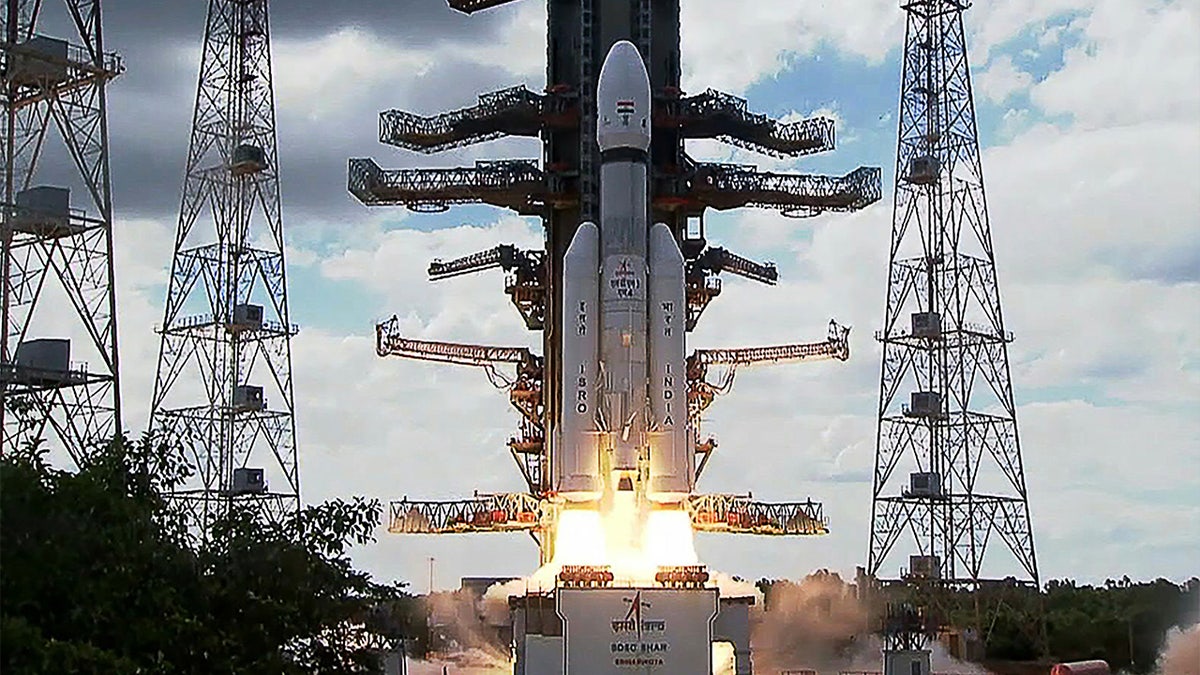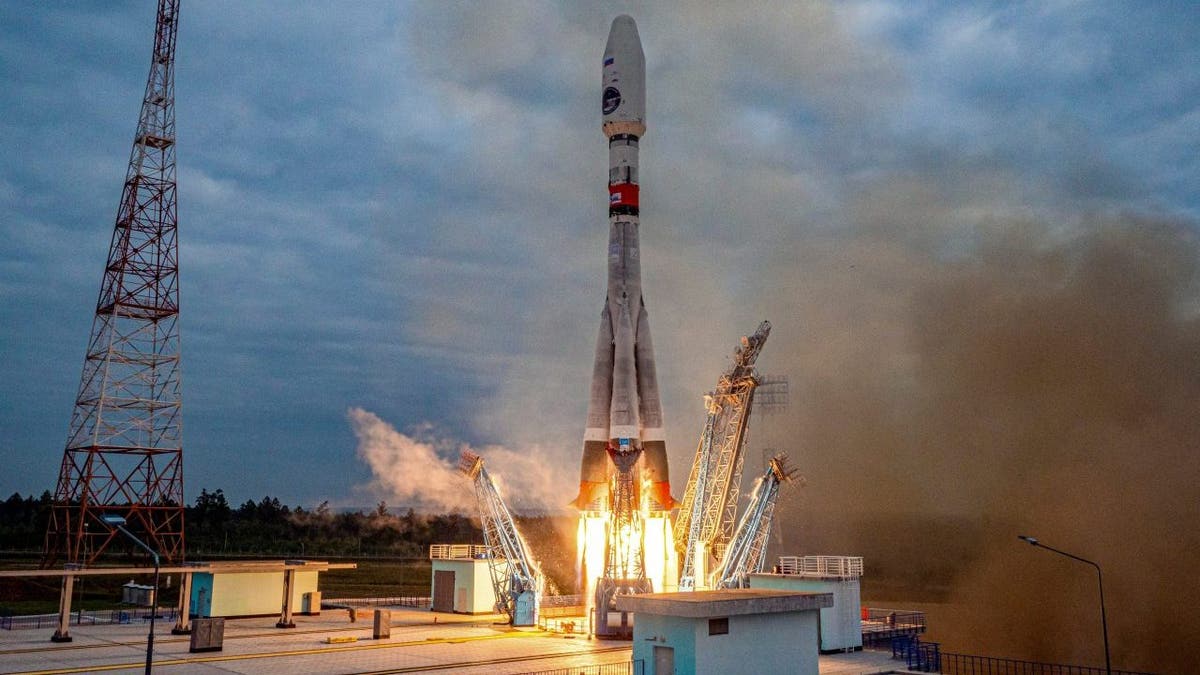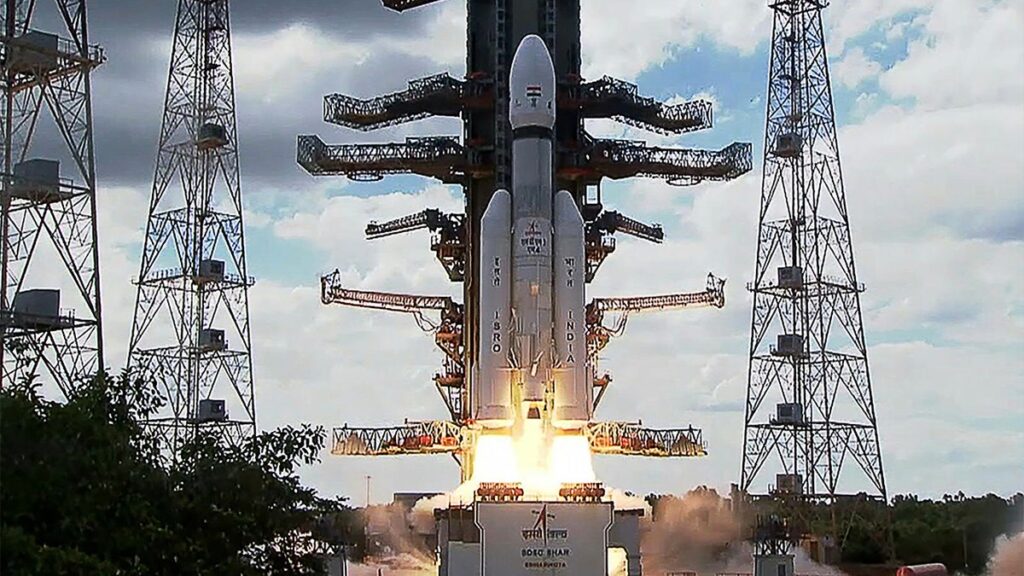[ad_1]
Days after Russia’s failed lunar mission, India is hoping to be the first country to land a spacecraft on the moon’s south pole.
The Indian Space Research Organization’s (ISRO) Chandrayaan-3 spacecraft is scheduled to land on the lunar south pole on Wednesday.
If successful, it would be the first spacecraft to land on the lunar south pole, a region whose shadowed craters are thought to contain water ice that could support future moon settlements.

FILE: This screen grab made from video footage from ISRO via AFPTV taken on July 14, 2023, shows an Indian Space Research Organisation (ISRO) rocket carrying the Chandrayaan-3 spacecraft lifting off from the Satish Dhawan Space Centre in Sriharikota, an island off the coast of southern Andhra Pradesh state. (ISRO/AFPTV/AFP via Getty Images)
India’s second attempt to land on the moon after a failure in 2019 is being seen as a display of the tenacity of its scientific institutions.
ISRO has been sharing regular updates of the mission through posts on X, formerly Twitter.
RUSSIAN MOON MISSION ENDS IN DISASTER AS LANDER HAS ‘CEASED TO EXIST’
“The mission is on schedule. Systems are undergoing regular checks. Smooth sailing is continuing,” it said on Tuesday.
“The Mission Operations Complex (MOX) is buzzed with energy & excitement!”
The landing attempt comes days after Russia failed to return to the moon after nearly half a century. The robotic Luna-25 probe crashed onto the surface of the moon over the weekend.

In this image made from video released by Roscosmos State Space Corporation, the Soyuz-2.1b rocket with the moon lander Luna-25 automatic station takes off from a launch pad at the Vostochny Cosmodrome in the Russian Far East on Friday, Aug. 11, 2023. ((Roscosmos State Space Corporation via AP))
Yuri Borisov, the head of the state-controlled space corporation Roscosmos attributed the failure to the lack of expertise due to the long break in research that followed the Soviet’s last mission to the moon in the late 1970s.
Borisov said the spacecraft’s thruster fired for 127 seconds instead of the planned 84 seconds, causing it to crash, and a government mission will investigate the glitch.
CLICK HERE TO GET THE FOX NEWS APP
The lunar south pole is of particular interest to scientists. The permanently shadowed polar craters are believed to contain frozen water in the rocks that future explorers could transform into air and rocket fuel.
The Associated Press and Reuters contributed to this report.
[ad_2]
Source link







